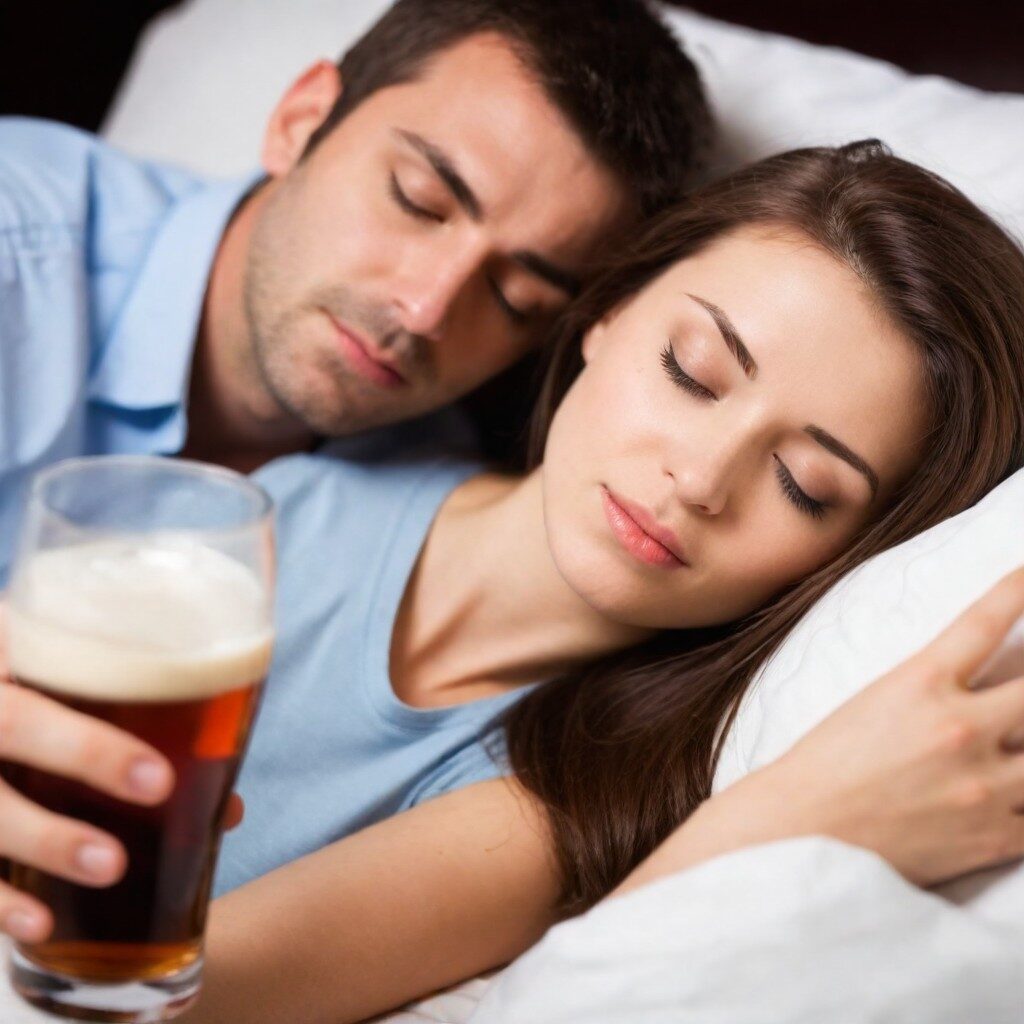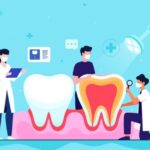
How Do Alcohol And Caffeine Affect Sleep?
Are you struggling to get a good night’s sleep? The culprit might be closer than you think. Dive into the world of how your favorite pick-me-ups – caffeine and alcohol – could be disrupting your precious slumber. Let’s uncover the effects of these common beverages on your sleep quality and explore tips for finding that elusive sweet spot between indulgence and restful nights.
What is the Effects of Caffeine on Sleep
Caffeine, the beloved stimulant found in coffee, tea, and energy drinks, is a double-edged sword when it comes to sleep. It works by blocking adenosine receptors in the brain, keeping you alert and awake. Even that innocent late afternoon latte can linger in your system for hours.
Consuming caffeine too close to bedtime can disrupt your natural sleep-wake cycle. Your body needs time to metabolize this stimulant fully before you hit the hay. Remember, even decaf options contain some level of caffeine!
The effects of caffeine on sleep vary from person to person. Some individuals may be more sensitive to its jolting effects than others. Keep an eye out for any signs like trouble falling asleep or staying asleep if you suspect caffeine might be interfering with your restorative slumber.
It’s all about finding that delicate balance between enjoying your favorite caffeinated beverages during the day without sacrificing your precious Zzzs at night.
What is the Effect of Alcohol on Sleep
Alcohol, often seen as a social lubricant, can have significant effects on your sleep patterns. While it may initially make you feel drowsy and help you fall asleep faster, the quality of your sleep is compromised. Alcohol disrupts the normal stages of sleep, leading to fragmented and less restorative rest.
Consuming alcohol before bed can interfere with REM (rapid eye movement) sleep, which is crucial for memory consolidation and overall cognitive function. Additionally, alcohol can worsen conditions like sleep apnea and snoring, further impacting the quality of your rest.
Even moderate amounts of alcohol can disrupt your natural circadian rhythm, making it harder to maintain a consistent sleep schedule. To improve your chances of getting a good night’s rest, consider reducing or avoiding alcohol consumption close to bedtime.
The Impact Of Caffeine On Sleep
Caffeine, found in coffee, tea, and energy drinks, is a stimulant that can disrupt sleep patterns. Consuming caffeine too close to bedtime can make it difficult to fall asleep as it blocks the action of adenosine, a neurotransmitter that promotes sleepiness.
Even if you can fall asleep after consuming caffeine late in the day, the quality of your sleep may suffer. It can lead to lighter and less restorative sleep cycles, resulting in feelings of grogginess and fatigue upon waking up.
To avoid these effects on your sleep, try limiting caffeine intake at least 6 hours before bedtime. Opt for decaffeinated beverages or herbal teas in the evening instead.
Being mindful of how much caffeine you consume throughout the day can significantly improve your overall sleep quality and help you feel more refreshed each morning.
How Alcohol Affects Sleep
Alcohol, often seen as a social lubricant or relaxation aid, can have significant effects on sleep quality. While it may initially make you feel drowsy and help you fall asleep faster, the quality of your rest can be compromised.
Consuming alcohol close to bedtime disrupts the natural stages of sleep, leading to fragmented rest and decreased REM sleep. This disruption prevents your body from fully recovering during the night.
Alcohol also relaxes the muscles in your throat and jaw, potentially worsening conditions like snoring or obstructive sleep apnea. These breathing disturbances can further interrupt your restorative sleep cycles.
Additionally, alcohol is a diuretic, meaning it increases urine production throughout the night. This can result in more frequent trips to the bathroom and further disruptions to your overall sleep pattern.
To prioritize better sleep hygiene, consider reducing alcohol consumption before bed and opting for healthier alternatives such as herbal teas or meditation practices instead.
Tips For Consuming Alcohol And Caffeine In A Healthy Way
When it comes to consuming alcohol and caffeine, moderation is key. Try to limit your intake throughout the day to avoid disrupting your sleep patterns. For caffeine, consider cutting back on consumption in the afternoon and evening hours. Opt for decaffeinated options later in the day if you still crave a warm drink.
For alcohol, be mindful of how much you’re drinking and its effects on your body. Consider having a glass of water between alcoholic beverages to stay hydrated and pace yourself. Avoid heavy drinking close to bedtime as it can interfere with your ability to achieve restful sleep.
Experiment with alternatives like herbal teas or mocktails if you’re looking for a soothing beverage without the stimulating effects of caffeine or alcohol. Incorporating relaxation techniques into your evening routine can also help promote better sleep quality overall.
Remember that everyone’s tolerance levels are different, so listen to your body and adjust accordingly when it comes to healthily consuming alcohol and caffeine.
Also Read:- Which Direction To Sleep Scientifically
Natural Alternatives To Aid Sleep
Struggling with sleep? Looking for natural alternatives to help you drift off peacefully at night? You’re in the right place! Let’s explore some soothing options that can promote better rest without relying on caffeine or alcohol.
One effective natural sleep aid is valerian root, a herb known for its calming properties. Chamomile tea is another popular choice, as it contains compounds that may reduce anxiety and improve sleep quality. Lavender essential oil can create a relaxing atmosphere, perfect for unwinding before bedtime.
Incorporating relaxation techniques like meditation or gentle yoga stretches into your evening routine can signal to your body that it’s time to wind down. Additionally, creating a comfortable sleep environment by keeping your bedroom cool and dark can enhance the quality of your rest.
By exploring these natural alternatives and finding what works best for you, you can support healthy sleep patterns without relying on substances that may disrupt your rest.
Also Read:- How Do I Stop Back Pain From An Office Job?
Conclusion: Finding A Balance For Better Sleep
Striking a balance between consuming alcohol and caffeine is crucial for achieving better sleep. It’s essential to be mindful of how these substances impact your body and ultimately affect your ability to rest peacefully at night.
When it comes to alcohol, moderation is key. Limiting the amount you consume before bedtime can help prevent disruptions in your sleep cycle. Opting for herbal teas or warm milk as alternatives can promote relaxation without the negative effects of alcohol.
Similarly, monitoring your caffeine intake throughout the day can significantly improve your sleep quality. Cutting back on caffeinated beverages in the afternoon and evening hours can help regulate your body’s natural sleep patterns.
Exploring natural remedies like meditation, aromatherapy, or gentle exercise may also aid in promoting better sleep hygiene. Finding a holistic approach that works for you is essential in maintaining a healthy balance between enjoying life’s indulgences while prioritizing restful nights.
FAQs
Q: Can I drink caffeine or alcohol and still get a good night’s sleep?
A: It is best to limit your intake of caffeine and alcohol, especially close to bedtime, to ensure you have a restful night.
Q: Are there any natural alternatives to help me sleep better?
A: Yes, consider trying relaxation techniques like meditation or drinking herbal teas such as chamomile before bed. These can help promote better sleep without the negative effects of caffeine and alcohol.
Q: How long does it take for caffeine and alcohol to leave my system?
A: Caffeine typically stays in your system for about 6 hours, while the effects of alcohol can last up to 8 hours. It’s essential to be mindful of when you consume these substances relative to your bedtime.
By being aware of how caffeine and alcohol affect your sleep patterns and making conscious choices about consumption, you can find a balance that promotes better quality rest. Remember, small changes in your habits can lead to significant improvements in your overall well-being. Good night!






Leave Your Comment